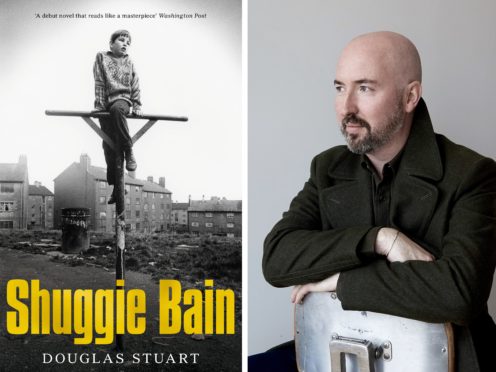Douglas Stuart has won this year’s Booker Prize for his novel Shuggie Bain.
It’s been a banner year for debuts, and Stuart was one of the four shortlisted authors nominated for their first novel. He was up against books including Avni Doshi’s Burnt Sugar, which tracks the toxic relationship between a mother and daughter, and The New Wilderness by Diane Cook – about one woman’s fight to save her daughter in a world destroyed by climate change.
We are delighted to announce the #2020BookerPrize shortlist. Read more: https://t.co/kj9CbeZtKH
Join us tonight at 5pm BST in a virtual celebration of our #shortlist, livestreamed on our Facebook and YouTube channels. #FinestFiction pic.twitter.com/qpjvKCRXa7
— The Booker Prizes (@TheBookerPrizes) September 15, 2020
This year’s announcement comes as less of a shock than the 2019 awards, when Margaret Atwood’s The Testaments and Bernardine Evaristo’s Girl, Woman, Other were named joint winners.
Barack Obama made a virtual appearance at this year’s ceremony, saying: “I’ve always turned to writing to make sense of our world… And at their best Booker Prize-listed books remind me of fiction’s power to put ourselves in someone else’s shoes, understand their struggles, and imagine new ways to tackle complex problems and effect change.”
Stuart, 44, is the second Scot to hold the prize, following James Kelman in 1994. Here is everything you need to know about the author…
Stuart’s background…
Shortlisted #2020BookerPrize author, @Doug_D_Stuart shares his #FridayFact with us: “I feel like I truly 'read' my first book at sixteen. School was a riot. My English teacher was just watching me one day, My mother had just died, I was in the closet… pic.twitter.com/AH8BwZjomU
— The Booker Prizes (@TheBookerPrizes) November 6, 2020
Born and raised in Glasgow, Stuart’s career didn’t start in literature. He attended the Scottish College of Textiles and the Royal College of Art in London, later moving to New York to be a fashion designer and working for labels like Calvin Klein and Ralph Lauren.
Stuart started writing in his spare time around a decade ago, with his short stories and essays appearing in The New Yorker and LitHub.
He holds both British and American passports and currently lives in New York.
The book…
Shuggie Bain publishes in the U.K. today. It’s been about twelve years now, start to finish, but I’m so happy that Shuggie has finally come home. Look after him for me, will you? pic.twitter.com/QiYZuO0E90
— Douglas Stuart (@Doug_D_Stuart) August 6, 2020
Stuart says Shuggie Bain was about 10 years in the making. Set in Glasgow in 1981, it explores the effects of extreme poverty. Agnes Bain is hard done by: her husband has left her to raise their three children alone, and she’s increasingly turning to the bottle. Eventually, all of her children leave – except for Shuggie. Meanwhile, Shuggie is struggling with his own sexuality while also trying to support his volatile mother.
It’s both political and personal, and paints a devastating picture of what life was like for some in Glasgow under Margaret Thatcher. Stuart tells The New York Times: “For me, Shuggie Bain is a love story. It’s about love before it’s about addiction.”
The New York Times draws comparisons between the novel and Stuart’s own upbringing as the youngest of three children, with a mother struggling with addiction.
What’s next…
Watch this trailer to see fan and actor @Alancumming share his thoughts on #2020BookerPrize shortlisted author @Doug_D_Stuart’s book, Shuggie Bain. @picadorbooks @panmacmillan #shortlist #DouglasStuart #AlanCumming pic.twitter.com/26fSQor0FT
— The Booker Prizes (@TheBookerPrizes) November 9, 2020
Stuart has nearly finished his next novel, Loch Awe. He tells The Booker Prize: “It is set in 1990s Glasgow, and is the tale of two teenage boys, who fall in love despite being divided along territorial, sectarian lines. It takes a look at toxic masculinity and the pressure we place on working-class boys to ‘man up’.
“I wanted to show how young men growing up in extreme poverty can be some of the most victimised and overlooked people in British society. I am always looking for tenderness in the hardest places.”
